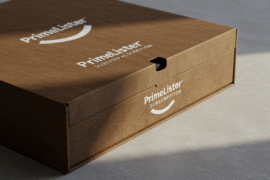This article may contain references to products or services from one or more of our advertisers or partners. We may receive compensation when you click on links to those products or services. Nonetheless, our opinions are our own.
The information presented in this article is accurate to the best of our knowledge at the time of publication. However, information is subject to change, and no guarantees are made about the continued accuracy or completeness of this content after its publication date.
Swiss Businesses Monitor U.S. Tariff Threats
Swiss businesses are closely watching U.S. trade policy after former President Donald Trump suggested a potential 39 percent tariff on selected imports. Such tariffs could raise costs and disrupt trade for Switzerland’s export-driven economy. This article explores the implications for industries, consumers, and strategies companies can adopt to remain resilient.
Tariffs and Their Impact
A tariff is a tax on imported goods that raises the cost of foreign products. For Swiss companies, this could mean higher operational expenses and increased prices for consumers. According to the Swiss State Secretariat for Economic Affairs (SECO), tariffs can reduce export competitiveness by 10–30 percent depending on the sector. For example, Swiss chocolate or watches facing a 39 percent U.S. import tax may require price adjustments, affecting demand and market share abroad.
Swiss Business Landscape
Switzerland thrives on high-value exports such as precision engineering, luxury watches, pharmaceuticals, and premium food and beverages. A 39 percent tariff could disrupt vital sectors:
Manufacturing and Engineering
Swiss watchmakers and machinery producers rely on imported components. Higher tariffs could raise production costs, making products less competitive in the U.S. market.
Foods and Beverages
Exports of chocolate, cheese, and wine could see reduced demand if prices rise. SECO reports that U.S. imports account for 12 percent of Swiss chocolate exports.
Pharmaceuticals
Switzerland’s pharmaceutical industry relies on cost-effective access to raw materials. Tariffs could increase production costs, potentially affecting global pricing.
Consumer Implications
Higher tariffs are likely to impact consumers. Products may become more expensive, prompting some to switch to cheaper alternatives. Conversely, local consumption may rise as Swiss-made products receive increased domestic support.
Voted "Best Overall Budgeting App" by Forbes and WSJ
Monarch Money helps you budget, track spending, set goals, and plan your financial future—all in one app.
Get 50% OFF your first year with code MONARCHVIP
Opportunities Amid Challenges
While tariffs present risks, they can also drive innovation and growth:
- Innovation: Companies may adopt localized production methods or develop new product lines.
- Community Engagement: Emphasizing local sourcing can strengthen consumer trust and national pride.
- Diversification: Businesses can explore alternative international markets to reduce dependence on U.S. trade.
Global Trade Repercussions
A 39 percent U.S. tariff could have broader implications:
- Trade Relations: Economic ties with the U.S. could face strain, possibly leading to retaliatory measures.
- Lost Opportunities: Collaboration with EU partners may encounter disruptions.
- Historical Precedent: Past trade disputes, such as U.S.-China tariffs, demonstrate how quickly tensions can affect global markets.
Expert Opinions
Economists and trade analysts caution against blanket tariffs. Dr. Markus Baumgartner, a trade economist at the University of Zurich, notes, “A 39 percent tariff could significantly reduce Swiss exports and destabilize supply chains.” Selective tariffs may protect local industries, but careful diplomacy is necessary to avoid unintended consequences.
Strategies for Swiss Businesses
To navigate potential tariffs, companies can adopt proactive measures:
- Explore Local Sourcing: Reduce reliance on imports to minimize exposure to tariffs.
- Invest in R&D: Innovate products and processes to maintain competitiveness.
- Consumer Communication: Transparently inform customers about price changes and local initiatives.
- Collective Advocacy: Collaborate with trade associations like the Swiss Business Federation to influence policy and present a unified response.
FAQ
What are the main concerns of Swiss businesses regarding Trump’s proposed tariffs?
Swiss businesses worry that a 39 percent tariff will increase export costs, reduce competitiveness in the U.S., and potentially lead to job losses.
Which industries are most affected?
The best sectors include pharmaceuticals, machinery, watches, and premium food and beverage exports.
How might tariffs impact U.S.-Switzerland trade relations?
Tariffs could strain relations, prompting companies to explore alternative markets or adjust investments in the U.S.
How are Swiss businesses preparing?
Companies are reviewing supply chains, diversifying markets, investing in innovation, and collaborating through trade associations.
Are there potential benefits?
Potential benefits include increased focus on local production, innovation, and market diversification to reduce dependency on the U.S. economy.
Closing Remarks
Trump’s proposed 39 percent tariff presents major challenges for Swiss businesses, consumers, and trade partners. Strategic planning, innovation, and collaborative action can help companies turn risks into growth opportunities. By emphasizing local sourcing, diversifying markets, and investing in research, Swiss firms can remain competitive. Clear communication with consumers will strengthen trust and loyalty. While uncertainty persists, proactive strategies ensure long-term resilience and market adaptability. Swiss businesses have the potential to transform challenges into innovation and sustainable economic success.

Reviewed and edited by Albert Fang.
See a typo or want to suggest an edit/revision to the content? Use the contact us form to provide feedback.
At FangWallet, we value editorial integrity and open collaboration in curating quality content for readers to enjoy. Much appreciated for the assist.
Did you like our article and find it insightful? We encourage sharing the article link with family and friends to benefit as well - better yet, sharing on social media. Thank you for the support! 🍉
Article Title: Impact of U.S. Tariffs on Swiss Businesses
https://fangwallet.com/2025/09/04/impact-of-u-s-tariffs-on-swiss-businesses/The FangWallet Promise
FangWallet is an editorially independent resource - founded on breaking down challenging financial concepts for anyone to understand since 2014. While we adhere to editorial integrity, note that this post may contain references to products from our partners.
The FangWallet promise is always to have your best interest in mind and be transparent and honest about the financial picture.
Become an Insider

Subscribe to get a free daily budget planner printable to help get your money on track!
Make passive money the right way. No spam.
Editorial Disclaimer: The editorial content on this page is not provided by any of the companies mentioned. The opinions expressed here are the author's alone.
The content of this website is for informational purposes only and does not represent investment advice, or an offer or solicitation to buy or sell any security, investment, or product. Investors are encouraged to do their own due diligence, and, if necessary, consult professional advising before making any investment decisions. Investing involves a high degree of risk, and financial losses may occur including the potential loss of principal.
Source Citation References:
+ Inspo
There are no additional citations or references to note for this article at this time.












































